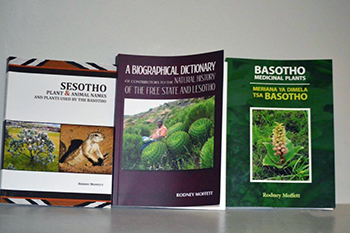Latest News Archive
Please select Category, Year, and then Month to display items
08 May 2024
Photo SUPPLIED

The Dean of the Faculty of Natural and Agricultural Sciences, Prof Paul Oberholster, has the pleasure of inviting you to the inaugural lecture of Prof Dirk Opperman.
Date: 21 May 2024
Time: 17:30
Venue: Equitas
 Click here to RSVP before Wednesday, 15 May 2024. Alternatively, contact Christelle van Rooyen on +27 51 401 9190.
Click here to RSVP before Wednesday, 15 May 2024. Alternatively, contact Christelle van Rooyen on +27 51 401 9190.
About Prof Dirk Opperman
Prof Dirk Opperman obtained his PhD in Biochemistry at the University of the Free State in 2008. This was followed by postdoctoral research on directed evolution with Prof Manfred T Reetz at the Max Planck Institute for Coal Research (Germany). In 2010, he was appointed in the Department of Microbiology and Biochemistry. He subsequently established structural biology at the UFS, and his current research focus lies at the interface of evolutionary and structure-function relationships of biocatalysts, and their application in green chemistry. He is an NRF B-rated researcher with co-authored papers in Science, Nature Communications, and Angewandte Chemie.
His research has been funded by both local and international organisations, ranging from industries such as SASOL to the Global Challenges Research Fund (GCRF, UK). He has a long-standing collaboration with researchers at the Delft University of Technology (TUDelft, the Netherlands) and is currently part of a European Research Area Network Cofund (ERA-NET Cofund) partnership on Food Systems and Climate (FOSC) that develops biocatalysts for upcycling waste.
Prof Moffett’s third book provides comprehensive guide to Basotho medicinal plants
2017-07-26

Prof Rodney Moffett’s three books documenting Basotho
plants, animals, and the history of the Free State and Lesotho.
Photo: Thabo Kessah
Prof Rodney Moffett has recently published his third book, Basotho Medicinal Plants – Meriana ya Dimela Tsa Basotho. This latest offering deals only with medicinal uses and is based on the data from his first book, Sesotho Plant and Animal Names and Plants Used by the Basotho.
“The latest book came about after a Sesotho language advisor in the Free State Department of Education suggested that there was a need for the medicinal uses of plants by the Basotho to be documented in the vernacular. In a situation where there is an almost total lack of scientific literature in the vernacular, the greatest value of this book therefore, is that it provides a comprehensive guide to the medicinal uses of plants in Sesotho,” said Prof Moffett, Honorary Research Associate in the Department of Plant Sciences on the Qwaqwa Campus.
Book lists names of plants in Sesotho
“It comprises two parts. Part one lists the medicinal categories and plants used, and part two lists the medicinal uses arranged according to the Sesotho names of the plants. It is easy to read, as the information is presented alphabetically with the Sesotho name first, followed by the scientific name and usage thereof. Because a plant often has more than one Sesotho name, the scientific name is included to identify it.”
Prof Chris Nhlapo, Deputy Vice-Chancellor of the Cape Peninsula University of Technology, and Prof Ntsamaeeng Moteetee from the University of Johannesburg are impressed with the book, respectively saying that it assists in documenting the deep indigenous knowledge of the “proud tradition of the Basotho Nation” and it is “an important contribution to the documentation of medicinal plant uses”.
The title of Prof Moffet’s second book was A Biographical Dictionary of Contributors to the Natural History of the Free State and Lesotho.
Prof Moffett was honoured with a Lifetime Researcher Award during the Academic and Research Awards on the Qwaqwa Campus in November.